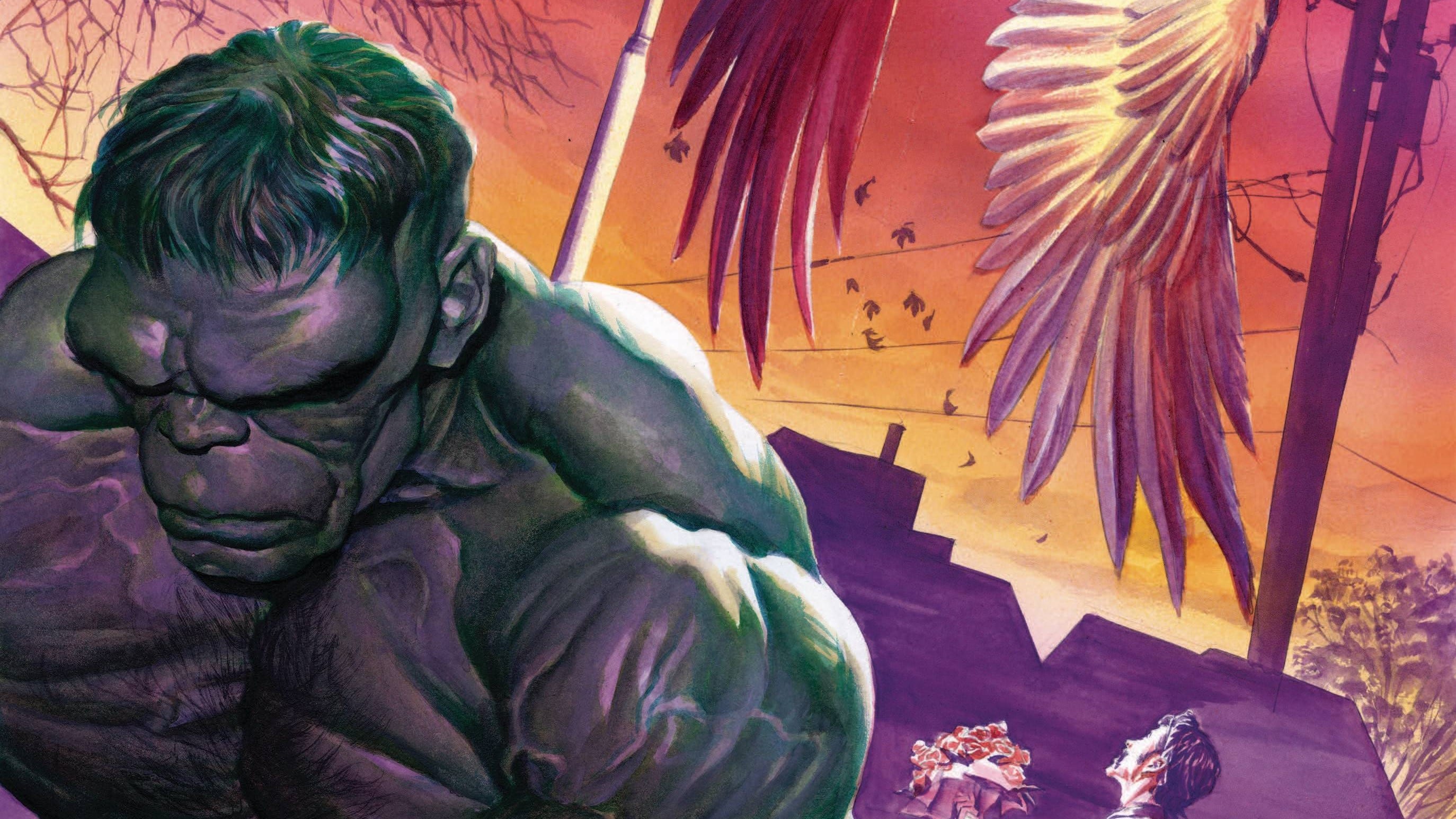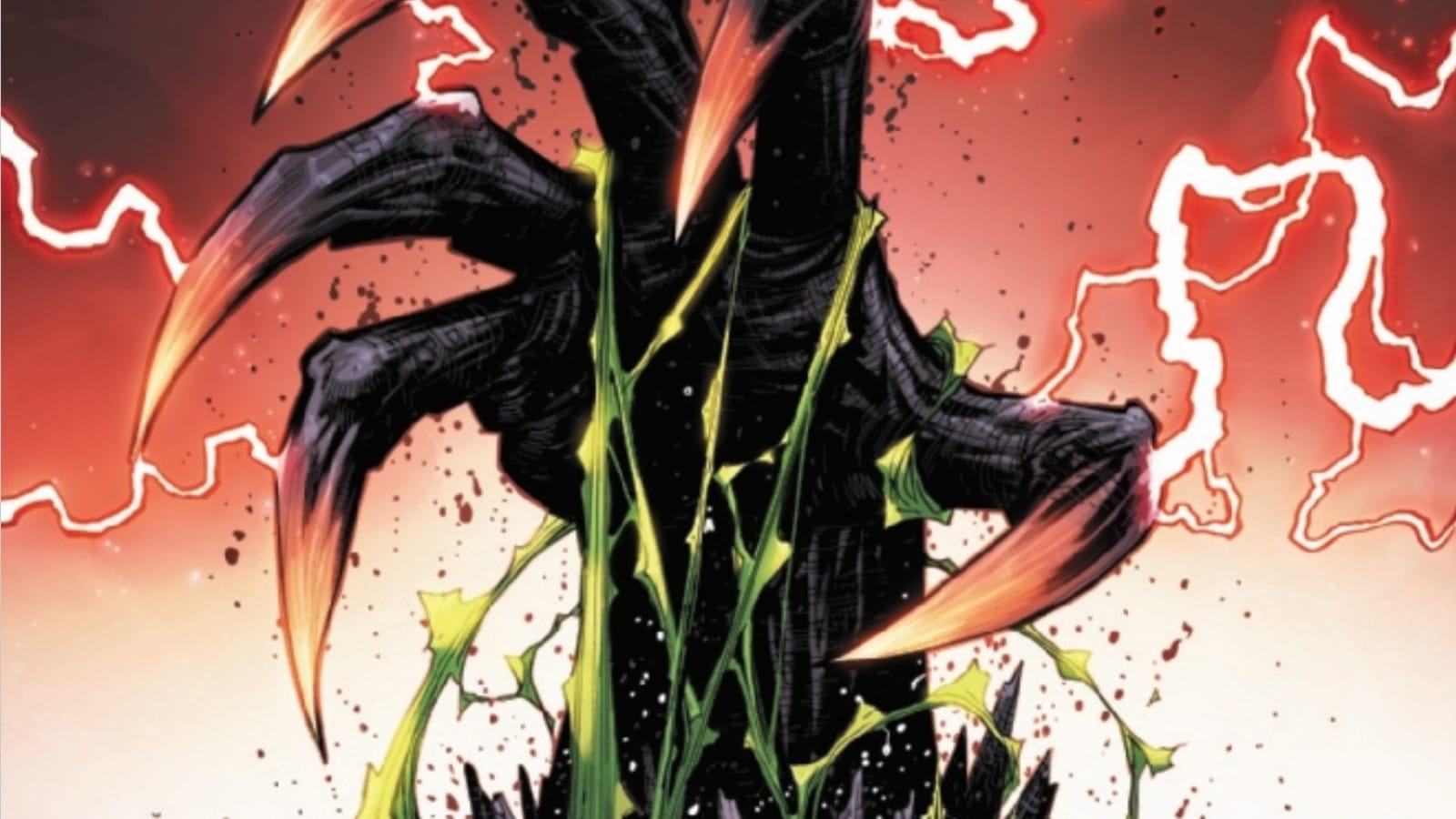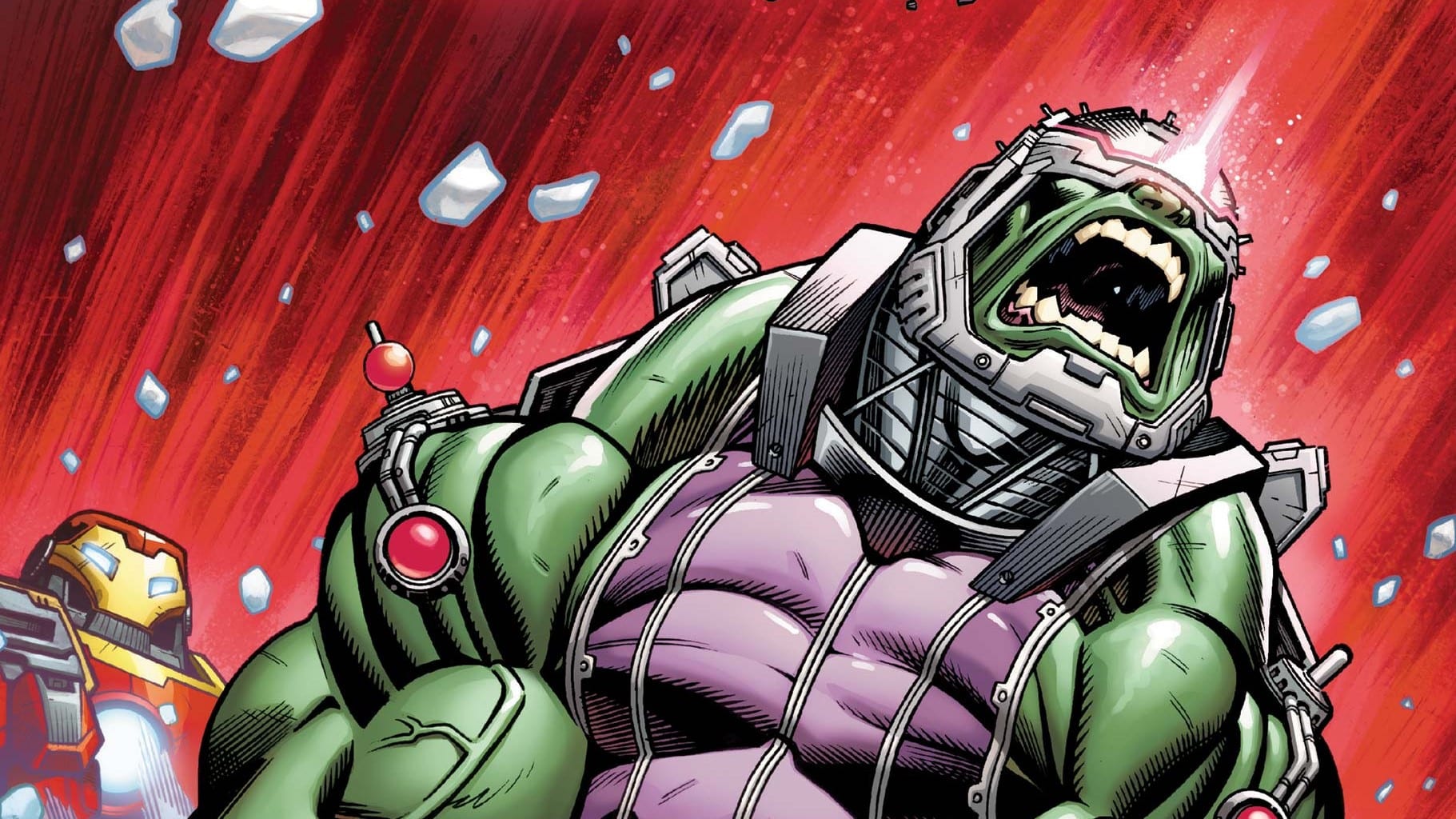A frank talk with Betty in Immortal Hulk #48 written by Al Ewing, pencilled by Joe Bennett, inked by Ruy José and Belardino Brabo. with colors by Paul Mounts, and letters by Cory Petit
Robert Secundus: Including this, just three issues left in one of the most incredible, triumphant runs in modern comics memory, and thus the end of Times Immortal. I don’t know about you, Cori, but while I’m feeling very melancholic, very nostalgic about this title, these discussions, I’m equally excited to see how it all comes together. I am desperately hoping that The Immortal Hulk comes together in such a way that it can stand forever as one complete, classic story.
Cori: I’d say it would have to whiff the landing pretty dang hard to not be considered an all-timer, but what do I know? I too am going to miss these chats, and the next time you and I will get together on one it will be for the big finale.
“And I dream of a grave, deep and narrow”
Rob: I’ve got a couple of bullshit degrees in “literature” or whatever, but I’ll be honest with you: I have read very little Kafka. I know the one with the Bug-guy that notable Evolutionary Biologists seem to struggle with. I’m vaguely aware of The Trial. On Monday, when I encountered this quotation, I thought I’d try to speed read The Castle, but an ongoing brain-problem with text put the kibosh on that. So I’m just going to offer a couple of bits of context that might be helpful, and a couple of thoughts of what this is doing here.
The Castle is an incomplete novel about a man who believes that he has been summoned to a castle to complete some job. When he arrives at the nearby village, bureaucracy endlessly delays him from ever entering the actual castle. Kafka planned for the novel to end with the protagonist’s death, still never having gotten inside. The whole premise feels surreal, and funny, and satirical, and horrifying in the way we now describe as Kafkaesque. To me— again, without having actually read it— it feels a lot like Brazil. Human bureaucracy being this kind of cosmic force that can trap you until you die also feels a lot like Immortal Hulk. The other important bit of context is that this quote is said by that protagonist to his fiancé. It’s ostensibly romantic.
Cori: Your excuse is much better than mine. Me? I’ve read zero Kafka. Not even the bug one. However I never even considered trying to speed read a novel. I just thought, surely Rob or Zach can just tell me what it all means, and that’s that. Clearly I was wrong, but YOLO. I do find it funny that you cited this as an unfinished novel, and then went on to describe that it would have ended with the main character never finishing the thing he set out to do, so in a way The Castle was Kafka’s own personal The Castle. That said, I absolutely agree about the romantic context of this quote, as it feels like it was specifically chosen to set up the contents of this very quiet issue. Rob: It’s an issue about a few things, but above all else the relationships between Betty and Joe, and Betty and the whole system. In the quote, K. wants to be totally alone with his beloved, alone and unseen, away from the world. And he associates that love and that isolation with death. It’s a quote about wanting to hide away with your love, and wanting to die with your love. At the start, it seems like Betty and Joe are able to establish a real connection for the first time this series, but that impulse to hide is ultimately shown to be the core problem in their relationship:

The Man Who Didn’t Know How To Fixit

Cori: As Betty said, it’s always Bruce that’s doing the hiding, and I think this issue drove home something that had been on the edges of this series, but hadn’t really been deeply explored. That Joe exists solely as a broken child’s idea of what a man should be. And one thing that I thought about after reading this issue is how this juxtaposes with a different character that shares that same genesis.
Joe and Captain Marvel (no I will never call the character Shazam! And you can’t make me. Shazam is the goldarn wizard and I will hear nothing otherwise) are both children’s idealized versions of what adulthood should be. The difference though is that while Billy Batson’s life isn’t a bed of roses, it’s not the dark despairing mess that Bruce Banner’s childhood was. Billy maintained hope and through that found love and family, while Bruce had the hope beaten out of him. Billy’s ideal adulthood is brave, and kind. Bruce’s is rage and fury meant to disguise pain and fear. It’s a stunning comparison and one that makes me just a little sadder for Bruce.
Rob: That’s a fascinating comparison, Cori. I think Captain Marvel’s importance to Superhero Fiction is pretty underestimated in the general population. The character not only defined the golden age, but its literalization of the escapist fantasy established a kind of archetype that would be revisited over and over again in genre. We see it recur in all kinds of weird places, not just in things like Miracleman, but also in the plans for Gambit and Mister Sinister, in the newest iteration of Venom, and now in this recontextualization of the Hulk. It’s interesting to me too that while Billy is granted power through virtuous legends— strength of Hercules, wisdom of Solomon and all that— this is a Captain Marvel assembled through vicious fiction. We know the Devil Hulk emerged from the Satan of Paradise Lost, and we see here how Joe emerged from gangster movies.
I think there’s a great power, an agency in this take on the archetype. Bruce isn’t granted his power by a wizard, and he isn’t given the virtues that other people have decided are good. These are his ideas. These are the fictions he chose to escape into. But there are problems here too. A fiction doesn’t always have a complete person at its center. What’s fascinating to me about Joe is his self-awareness. He knows that this is a problem. And, though he doesn’t know how yet, he, as his name implies, just wants to Fix It. To be good. To be complete.
Cori: And we can see that he’s trying but that to fix somethings it may be too little too late. Running and hiding doesn’t eliminate problems, it just prolongs them, allowing them to fester and build. While it’s clear that it may have been too long to salvage things with Betty, that conversation, that realization, is what pushes him to stop hiding from the other major problem in his life, and the issue closes with his intent to go rescue himself.
The Woman Who Pulled No Punches

Rob: And on the other side of the conversation we have Betty, a character who was not permitted agency throughout most of her publication history, who has gained agency only through her death.
Betty has been one of the most fascinating characters in this run. In the odd Red She-Hulk era, she was finally allowed power, but in Immortal Hulk she’s finally been allowed monstrosity, something normally not permitted to female characters. And in this conversation we get to see a bit more of who she has become.
Cori: God, she’s just a wonderful breath of fresh air in this series. I’ve said before that I don’t have a lot of experience with Hulk in general, so pretty much all the Betty I’ve gotten outside of Hulk: Gray is in the pages of this series. That’s not to say though that I don’t recognize the archetype she normally embodies. She’s the girlfriend of the superhero. There to provide motivation and not much more. These types of characters ran rampant through the Silver Age, occasionally being allowed to be something more, but often they’re just a plot point to encourage the hero in his own journey. As you said Rob, it’s a role that lacks agency and purpose, and watching Betty claim both of those things in this series has been an absolute delight. It’s nice to see that rather than finishing this series as a supporting character, she’s instead leaving early, of her own volition, and moving on to Defenders.
Rob: She’s accused Bruce of running, running and hiding, but I don’t think she’s being hypocritical here. There’s a difference between running and, as you say, leaving, between hiding from something and heading toward something. And I’m so excited to see just what her new journey in that title will entail.
Cori: Yeah, I absolutely agree that she’s not running to hide, she’s running to FIND. She needs to find out who she is without Joe. Without Bruce. Without Hulk. She needs to reclaim herself, in a way that she’s never been able to, because she’s always just been the back half of “Bruce and…” It’s time for her to find something beyond that, just like it’s time for Joe to stop hiding as well.
Marvelous Musings
- Cori was excited to be off next month until Zoe reminded her that she still has a Gamma Flight issue to review.
- The finale is going to be 80 pages of story, so get ready friends.
- It’s an interesting juxtaposition to have Jen’s monologue play over Betty’s history, considering Jen’s the one who’s had agency but is still tied to Hulk close enough that she can’t break away completely.







